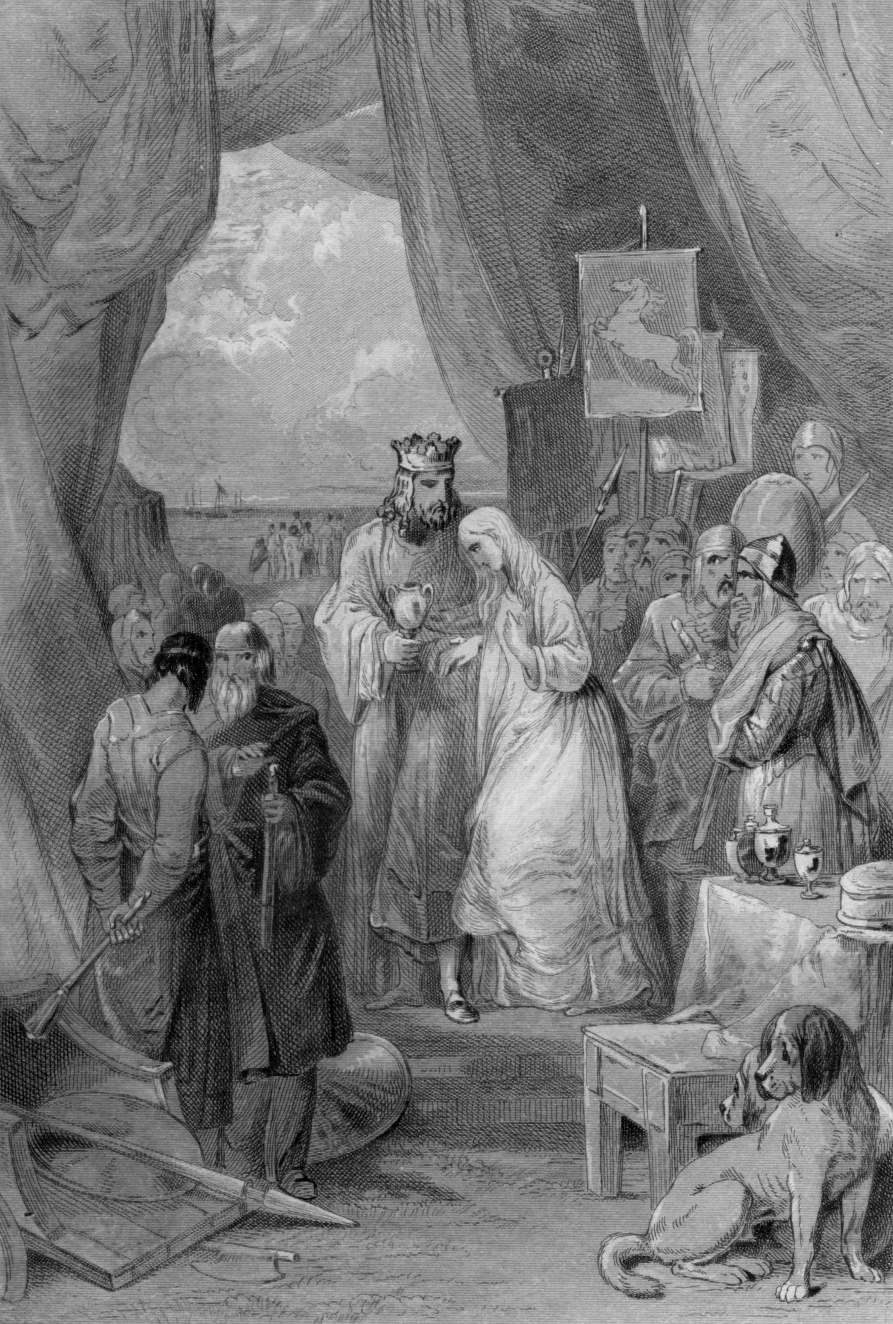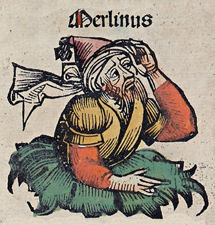|
Bridge Of Arta
The Bridge of Arta ( el, Γεφύρι της Άρτας) is a stone bridge that crosses the Arachthos river (Άραχθος) in the west of the city of Arta (Άρτα) in Greece. It has been rebuilt many times over the centuries, starting with Roman or perhaps older foundations; the current bridge is probably a 17th-century Ottoman construction. The folk ballad "The Bridge of Arta" tells a story of human sacrifice during its building. From the ballad, a number of Greek proverbs and customary expressions arose, associated with interminable delays, as in the text of the ballad: "All day they were building it, and in the night it would collapse." History According to the Epirote chronicler Panayiotis Aravantinos, the bridge was first built under the Roman Empire. Some traditions say it was rebuilt when Arta became capital of the Despotate of Epirus, possibly under Michael II Doukas (r. 1230–1268). The current bridge is Ottoman, probably from 1602–06 or perhaps 1613.Leo ... [...More Info...] [...Related Items...] OR: [Wikipedia] [Google] [Baidu] |
Footbridge
A footbridge (also a pedestrian bridge, pedestrian overpass, or pedestrian overcrossing) is a bridge designed solely for pedestrians.''Oxford English Dictionary'' While the primary meaning for a bridge is a structure which links "two points at a height above the ground", a footbridge can also be a lower structure, such as a boardwalk, that enables pedestrians to cross wet, fragile, or marshy land. Bridges range from stepping stones–possibly the earliest man-made structure to "bridge" water–to elaborate steel structures. Another early bridge would have been simply a fallen tree. In some cases a footbridge can be both functional and artistic. For rural communities in the developing world, a footbridge may be a community's only access to medical clinics, schools, businesses and markets. Simple suspension bridge designs have been developed to be sustainable and easily constructed in such areas using only local materials and labor. An enclosed footbridge between two buildings i ... [...More Info...] [...Related Items...] OR: [Wikipedia] [Google] [Baidu] |
Roman Empire
The Roman Empire ( la, Imperium Romanum ; grc-gre, Βασιλεία τῶν Ῥωμαίων, Basileía tôn Rhōmaíōn) was the post- Republican period of ancient Rome. As a polity, it included large territorial holdings around the Mediterranean Sea in Europe, North Africa, and Western Asia, and was ruled by emperors. From the accession of Caesar Augustus as the first Roman emperor to the military anarchy of the 3rd century, it was a Principate with Italia as the metropole of its provinces and the city of Rome as its sole capital. The Empire was later ruled by multiple emperors who shared control over the Western Roman Empire and the Eastern Roman Empire. The city of Rome remained the nominal capital of both parts until AD 476 when the imperial insignia were sent to Constantinople following the capture of the Western capital of Ravenna by the Germanic barbarians. The adoption of Christianity as the state church of the Roman Empire in AD 380 and the fall of the Western ... [...More Info...] [...Related Items...] OR: [Wikipedia] [Google] [Baidu] |
Uther Pendragon
Uther Pendragon (Brittonic) (; cy, Ythyr Ben Dragwn, Uthyr Pendragon, Uthyr Bendragon), also known as King Uther, was a legendary King of the Britons in sub-Roman Britain (c. 6th century). Uther was also the father of King Arthur. A few minor references to Uther appear in Old Welsh poems, but his biography was first written down in the 12th century by Geoffrey of Monmouth in his ''Historia Regum Britanniae'' (''History of the Kings of Britain''), and Geoffrey's account of the character was used in most later versions. He is a fairly ambiguous individual throughout the literature, but is described as a strong king and a defender of his people. According to Arthurian legend, Merlin magically disguises Uther to look like his enemy Gorlois, enabling Uther to sleep with Gorlois' wife Lady Igraine. Thus Arthur, "the once and future king", is an illegitimate child (though later legend, as found in Malory, emphasises that the conception occurred after Gorlois's death and tha ... [...More Info...] [...Related Items...] OR: [Wikipedia] [Google] [Baidu] |
Ambrosius Aurelianus
Ambrosius Aurelianus ( cy, Emrys Wledig; Anglicised as Ambrose Aurelian and called Aurelius Ambrosius in the ''Historia Regum Britanniae'' and elsewhere) was a war leader of the Romano-British who won an important battle against the Anglo-Saxons in the 5th century, according to Gildas. He also appeared independently in the legends of the Britons, beginning with the 9th-century ''Historia Brittonum''. Eventually, he was transformed by Geoffrey of Monmouth into the uncle of King Arthur, the brother of Arthur's father Uther Pendragon, as a ruler who precedes and predeceases them both. He also appears as a young prophet who meets the tyrant Vortigern; in this guise, he was later transformed into the wizard Merlin. According to Gildas Ambrosius Aurelianus is one of the few people whom Gildas identifies by name in his sermon ''De Excidio et Conquestu Britanniae'', and the only one named from the 5th century. ''De Excidio'' is considered the oldest extant British document about the ... [...More Info...] [...Related Items...] OR: [Wikipedia] [Google] [Baidu] |
Vortigern
Vortigern (; owl, Guorthigirn, ; cy, Gwrtheyrn; ang, Wyrtgeorn; Old Breton: ''Gurdiern'', ''Gurthiern''; gle, Foirtchern; la, Vortigernus, , , etc.), also spelled Vortiger, Vortigan, Voertigern and Vortigen, was a 5th-century warlord in Britain, known perhaps as a king of the Britons or at least connoted as such in the writings of Bede and Gildas. His existence is contested by scholars and information about him is obscure. He may have been the "superbus tyrannus" said to have invited Hengist and Horsa to aid him in fighting the Picts and the Scots, whereupon they revolted, killing his son in the process and forming the Kingdom of Kent. It is said that he took refuge in North Wales, and that his grave was in Dyfed or the Llŷn Peninsula. Gildas later denigrated Vortigern for his misjudgement and also blamed him for the loss of Britain. He is cited at the beginning of the genealogy of the early Kings of Powys. Medieval accounts Gildas The 6th-century cleric and historian ... [...More Info...] [...Related Items...] OR: [Wikipedia] [Google] [Baidu] |
Merlin
Merlin ( cy, Myrddin, kw, Marzhin, br, Merzhin) is a mythical figure prominently featured in the legend of King Arthur and best known as a mage, with several other main roles. His usual depiction, based on an amalgamation of historic and legendary figures, was introduced by the 12th-century British author Geoffrey of Monmouth. It is believed that Geoffrey combined earlier tales of Myrddin and Ambrosius, two legendary Briton prophets with no connection to Arthur, to form the composite figure called Merlinus Ambrosius ( cy, Myrddin Emrys, br, Merzhin Ambroaz). Geoffrey's rendering of the character became immediately popular, especially in Wales. Later writers in France and elsewhere expanded the account to produce a fuller image, creating one of the most important figures in the imagination and literature of the Middle Ages. Merlin's traditional biography casts him as an often-mad being born of a mortal woman, sired by an incubus, from whom he inherits his supernatural p ... [...More Info...] [...Related Items...] OR: [Wikipedia] [Google] [Baidu] |
The Building Of Skadar
''The Building of Skadar'' or ''The Walling of the Skadar'' or ''The Founding of Skadar'' ( sr, Зидање Скадра) is a poem of the pre-Kosovo cycle of Serbian epic poetry. It is based on the motif of human sacrifice. Time and place The events described in the poem allegedly occurred at the beginning of the 14th century. Jovan Tomić concluded that this song was created in the region near Skadar (now Shkodër), such as upper Albania, Montenegro, or the southwest part of Herzegovina where the tradition of the Mrnjavčević family was strong. His conclusion was later supported by other scholars. The army led by King Vukašin Mrnjavčević and his son Prince Marko came under Skadar in June 1371, but when they were informed about a large Ottoman army advancing from the east they headed east to prepare for the Battle of Maritsa. The same motif is described in poetry composed in some other languages. The version in Serbian is considered as the major South-Slavic version ... [...More Info...] [...Related Items...] OR: [Wikipedia] [Google] [Baidu] |
Acritic Songs
The Acritic songs ( "frontiersmen songs") are the epic poems that emerged in the Byzantine Empire probably around the ninth century. The songs celebrated the exploits of the Akritai, the frontier guards defending the eastern borders of the Byzantine Empire. The historical background was the almost continuous Arab–Byzantine wars between the seventh and twelfth centuries. Against this background several romances were produced, the most famous of which is that of '' Digenes Akritas'', considered by some to signal the beginnings of modern Greek literature. Subject Written in Medieval Greek, the Acritic songs deal with the heroic deeds ( el, ανδραγαθίες) of ("frontiersmen"), warriors that lived near the Arab frontiers and fought against the enemy. The constant state of war in the region and the repeated confrontations with the Arabs inspired poets to write down tales of chivalry as a response to a society that wished to be informed or hear details, whether factual or imag ... [...More Info...] [...Related Items...] OR: [Wikipedia] [Google] [Baidu] |
Kingdom Of Greece
The Kingdom of Greece ( grc, label= Greek, Βασίλειον τῆς Ἑλλάδος ) was established in 1832 and was the successor state to the First Hellenic Republic. It was internationally recognised by the Treaty of Constantinople, where Greece also secured its full independence from the Ottoman Empire after nearly four centuries. The Kingdom of Greece was dissolved in 1924 and the Second Hellenic Republic was established following Greece's defeat by Turkey in the Asia Minor Campaign. A military ''coup d'état'' restored the monarchy in 1935 and Greece became a Kingdom again until 1973. The Kingdom was finally dissolved in the aftermath of a seven-year military dictatorship (1967–1974) and the Third Hellenic Republic was established following a referendum held in 1974. Background The Greek-speaking Eastern Roman Empire, also known as Byzantine Empire, which ruled most of the Eastern Mediterranean region for over 1100 years, had been fatally weakened since the sa ... [...More Info...] [...Related Items...] OR: [Wikipedia] [Google] [Baidu] |
First Balkan War
The First Balkan War ( sr, Први балкански рат, ''Prvi balkanski rat''; bg, Балканска война; el, Αʹ Βαλκανικός πόλεμος; tr, Birinci Balkan Savaşı) lasted from October 1912 to May 1913 and involved actions of the Balkan League (the Kingdoms of Bulgaria, Serbia, Greece and Montenegro) against the Ottoman Empire. The Balkan states' combined armies overcame the initially numerically inferior (significantly superior by the end of the conflict) and strategically disadvantaged Ottoman armies, achieving rapid success. The war was a comprehensive and unmitigated disaster for the Ottomans, who lost 83% of their European territories and 69% of their European population.''Balkan Savaşları ve Balkan Savaşları'nda Bulgar ... [...More Info...] [...Related Items...] OR: [Wikipedia] [Google] [Baidu] |
Convention Of Constantinople (1881)
The Convention of Constantinople was signed between the Kingdom of Greece and the Ottoman Empire on 2 July 1881, resulting in the cession of the region of Thessaly (apart from Elassona) and a part of southern Epirus (the Arta Prefecture) to Greece. Background With the outbreak of the Great Eastern Crisis in 1875, many in Greece saw an opportunity for realizing the '' Megali Idea'' and expanding the borders of the country northward at the expense of the Ottoman Empire. At the same time, the Greek leadership from King George I down was aware that the Great Powers, and especially Great Britain, did not favour such adventures; consequently Greece adopted a more cautious stance, particularly given its military unpreparedness. This passivity was reinforced by the fear of Pan-Slavism engendered by the recent crisis over the establishment of the Bulgarian Exarchate, which led to distrust towards suggestions for a co-operation of all Balkan states, particularly by King George. Propos ... [...More Info...] [...Related Items...] OR: [Wikipedia] [Google] [Baidu] |


_Uthr_Bendragon.jpg)
_Emrys_Wledig.jpg)


